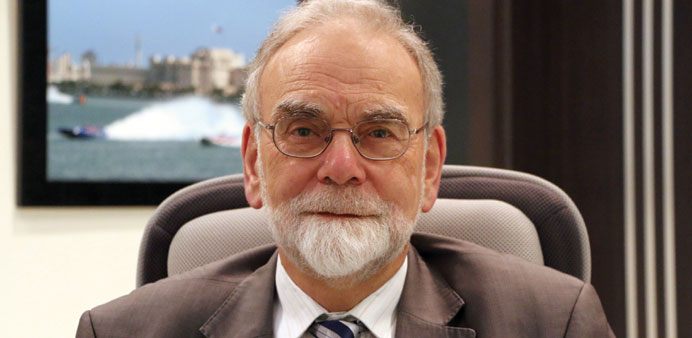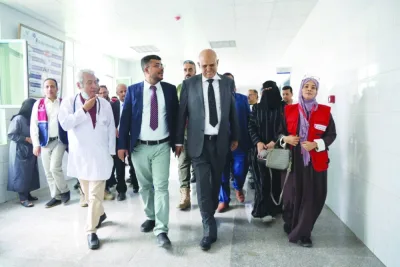By Umer Nangiana/Staff Reporter
The narrative that the Islamic civilisation stopped developing 700 years ago has been developed in the West and is insidious, a senior academic has stressed.
Professor Ahmed Keeler, a visiting fellow at the Centre of Islamic Studies, University of Cambridge, feels this incorrect account has unfortunately been adopted throughout the Muslim world and it is particularly damaging for the Muslim youth.
Prof Keeler expressed these views while talking to Gulf Times in an exclusive chat prior to his public lecture on the topic, “The West and Islam: The Changing Narratives”, which is scheduled to be held at the Museum of Islamic Art auditorium at 7pm today.
The reality, he said, is very different and is wonderful, which he is set to reveal in his lecture. Encouraging Muslims to understand what modernity and the modern world really are and how they came into being, Prof Keeler also wants them to question the prevalent narrative.
“The narrative, which has become very prevalent throughout the Muslim world that somehow the Islamic civilisation became stagnant 700 years ago and Muslims fell out of the race, taken over by Europeans and now the Muslims are a part of the developing world and have to catch up, is very insidious,” said the professor, who converted to Islam in 1976, six months before he organised The World of Islam Festival in London.
“This narrative was born in the West and it has actually been adopted by the Muslims. It has not come out of Islam. The reality is very different. Because this particular narrative is one of failure and that sense of failure, I believe, is very insidious. It is something that distorts the Muslims’ understanding and it is poison to the young,” said Keeler.
As someone young and growing up, one would think that one’s civilisation has failed if s/he buys this narrative. “What I am doing is to try and show how it is not true and what the real narrative is and that is my mission. I know the West. I have been through it and I know what it is and Alhamdulillah (Thank God), I have also been introduced to the beauty
of Islam and it is still there,” said the professor.
However, he disregarded the kind of frustration, anger and hitting out in rage in reaction to such a narrative as something not part of Islam. It is something that, he believed, has come about through not understanding what the modern world is or not understanding the story of Islam.
“I have had such a wonderful experience with Islam, it saved my life, took me out of a world of confusion and chaos,” said Prof Keeler.
Speaking about the so-called Islamophobia in the West, the professor said it was difficult for him to explain why it was there but the fear does exist. The reality of the spread of Islam is also true because Islam is spreading and in the most unusual ways.
“A very small part of that is related to extremism. I don’t like to call it a form of Islam because it is not a form of Islam. It is just a kind of strange ideology that has developed. But the fact is that people are drawn to Islam through many different ways,” says the professor, who, while residing in Cambridge for the past 22 years, has had a profound impact on a number of students passing through the university.
One factor, he believed, could be the huge disparity when it comes to treatment of different communities, “which, from a Muslim point of view, is enough to drive anybody crazy”.
“But that is why we have to be so careful. We have to really understand and be aware of what Prophet Muhammad (PBUH) had to put out with in Makkah, what those first Muslims went through in Makkah and what did He (the Prophet, PBUH) do. He taught patience and forbearance in the face of that kind of a persecution,” said Prof Keeler.
It is very difficult to weigh these disparities, he added. However, he said in England a lot of work has gone into creating good relations between communities. And it continues. “And Insha ’Allah (God Willing), this would mean that we don’t have this terrible situation in our country. And I hope so because there is a lot of goodwill,” hoped the professor.
He said he was made to reflect upon his life experiences by people close to him as he turned 70, at which point with some trepidation he put together a presentation that deals with his understanding of the West and Islam. The paradigm that he is proposing, and will discuss in his lecture, is one that does radically change the way Muslims view the West or the way they view the narrative of Islam.



